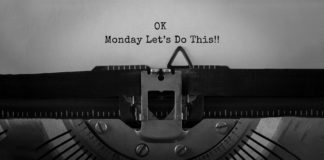Memory training: The allies we have in the fight against forgetfulness
Memory training is often the only difference between people with impressive memorization skills and those with average memory, researchers suggest. However, the long-term results intersect with a healthy life and learning style.
One lottery ticket and an unexpected ending
Whether we admit it or not, our lives are conditioned by money—mostly by the lack thereof. There are few who manage to snatch themselves out from under its spell, and even fewer who want it just to be able to give it away. Among the latter is Rachel Lapierre.
Christianity, between constraint and libertinism
To be a good Christian, they say, you must not swear, steal, lie, cheat or speak ill of anyone.
The portrait of Jesus (II): Jesus, the Lord and King
The Holy Scriptures call Jesus “the Lord”, that is, the Master. This was a respectful title used by slaves towards their masters in Antiquity. This is how subordinates addressed their superiors: children and their fathers; siblings, and their older siblings—or even a younger sibling who holds a high position.
What exactly lies within us?
“What is mankind that you make so much of them, that you give them so much attention, that you examine them every morning and test them every moment?” (Job 7:17-18)
Love, from dawn to dusk
Love stories have a way of creeping into the foreground and convincing us that their effervescent debut is just the overture to a marriage that will always rekindle, in a different intensity, the same fireworks of beginnings.
Are Christians better equipped to make decisions?
"All your life long you are slowly turning this central thing into a heavenly creature or a hellish creature" through the decisions you make, wrote CS Lewis. If the choices we make really have such an impact, how can Christians make sure they make the right decisions?
The need for control, between illusion and responsibility
As a child, I suffered because of the decisions the adults would make. At least, that's what I believed for a long time. It seemed unfair to me to not have veto power in the key moments that defined us as a family, and I was looking forward to the day when I would detach myself from the will of my elders.
Seventh-day Adventists
Seventh-day Adventists consider the issue of religious freedom to be essential to their mission. “Separation of church and state offers the best safeguard for religious liberty and is in harmony with Jesus’ statement in Matthew 22:21: ‘Render therefore unto Caesar the things which are Caesar’s; and unto God the things that are God’s’.”
Why I believe in God
If I could turn back time and return to my friend’s living room that day, when she was telling me with tears in her eyes that she wished she could believe, that she tries but is not able, I would probably find more appropriate words than I did then.
Symptoms of a marriage that’s doomed for divorce
Behind the prelude to a divorce are four major destructive behaviours which can prevent the couple from keeping their enthusiastic promise of staying together ...for better or for worse, till death us do part.
Depression, a disease of civilisation
Five decades ago, when the World Organization for Social Psychiatry was established, many thought it was a joke. Others, being more analytical, tried to prove that mental illness can only be an individual experience; that the problem always exists only in an individual and never in a group.
Overcoming boundaries without crossing the line
I was a young student looking for a good paying job to support my family and my studies. On that day, I found myself in the head nurse’s office at the nearby nursing home for the elderly.
What is the link between religion and conspiracy?
In the famous realist novel A Journal of the Plague Year, Daniel Defoe blends the factual with the imaginary, describing the social context just before the great plague struck London in 1665. Among the reactions described, two straddle the line between religion and conspiracy.
The Second Coming Files: a 2000-Year Inquiry | Part II: Millenarianism as a forgotten orthodoxy
Right from the first centuries, the scenario of the second coming of Jesus was interpreted spiritually-allegorically by some, and politically-ecclesiastically by others. As we have learned from the previous article of this series, even the main millenarian movement in antiquity (Montanism) led to an anti-apocalyptic reaction on the part of moderate Christianity. Is this rejection of apocalyptic millenarianism justified? What does Revelation actually...


























